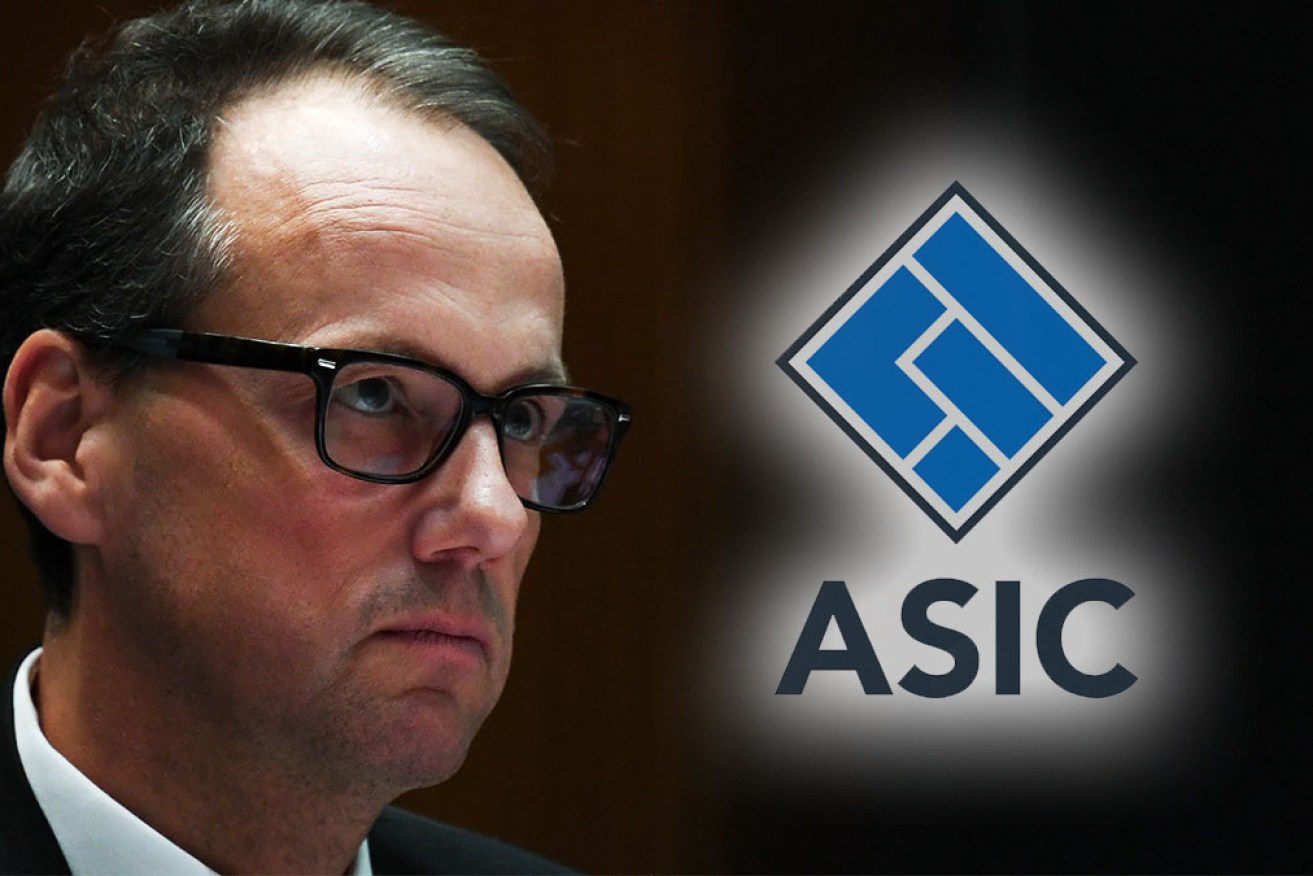ASIC used in-house lawyers to avoid official scrutiny of stood-down chair Shipton’s tax costs


ASIC avoided official channels to pay chair James Shipton's irregular tax expenses. Photo: TND
The Australian Securities and Investments Commission avoided for months running past the Remuneration Tribunal tax expenses it agreed to pay for stood-down Chairman James Shipton, instead using internal lawyers to vet the claim.
In a bombshell announcement to the House of Representatives Standing Committee on Economics on Friday, Mr Shipton said he could not give evidence as he had stood aside from his role over the issue which saw ASIC pay $118,557 in tax expenses despite approval only being given for a $4050 payment.
“I have just advised the Treasurer that is it appropriate that I stand aside pending the outcome of the review,” Mr Shipton told a stunned Parliamentary Committee.
“I will voluntarily reimburse ASIC for the tax related expenses ASIC paid following my 2018 relocation from the United States.”
Also got the deputy
ASIC deputy commissioner Daniel Crennan was also caught out by the review, conducted by the Australian National Audit Office, over ASIC’s payment of $70,000 in relocation costs following his move from Melbourne to Sydney for the commission in 2019.
Mr Crennan has since agreed to repay the money “as a debt to the Commonwealth,” Mr Shipton said.
Mr Shipton was headhunted for the lead role at ASIC after spending a number of years in America at Harvard University and previously at investment bank Goldman Sachs. As part of his package to return home, ASIC agreed to pay some of his costs for winding up his tax affairs in the US.
In a letter to Treasurer Josh Frydenberg, ANAO detailed the complex negotiations over Mr Shipton’s tax costs. Initially ASIC approved a payment of only $4050 which was later increased to $9500 after KPMG advised that the true cost would be closer to $70,000 which ultimately blew out again to $118,557.
Slipped it past
Instead of running its plans past the Remuneration Tribunal, ASIC then relied on internal lawyers’ advice and went ahead to cover Mr Shipton’s total tax costs. ANAO caught wind of the deal and called it out in its 2018-19 annual report, which was issued this August.
ASIC was then formally notified of its concerns by ANAO. “The first time we were made aware of … the seriousness of their concerns … was when we were considering signing off the financial statements on the 10th of September,” Karen Chester, who is now standing in for Mr Shipton, told the Parliamentary Committee.
“ASIC acknowledges that action in relation to this matter, first raised in the ANAO’s 2018-19 Closing Report, should have taken place more promptly.”
However, despite ASIC being told of ANAO’s concerns in mid-September, the Auditor General apparently did not formally tell Mr Shipton and the Treasurer of his view on the payments untill October 22. Mr Shipton stood down a day later.
But there was confusion about when the Treasurer knew about it – with Ms Chester telling the Committee on Friday that the Treasurer received an email from the Auditor General about it on September 15.
Labor shadow assistant treasurer Stephen Jones called on Mr Frydenberg to clarity the situation.
That was more than a year after ASIC had agreed to stump up Mr Shipton’s tax expenses.
“Email correspondence provided by ASIC indicates that on 11 October 2018 advice provided to the Chair by ASIC was that the full amount would be paid by ASIC given it fitted within the overall relocation limits discussed with Treasury and the services fitted within the definition of tax briefings and returns,” ANAO’s letter to the Treasurer said.
It is not clear how Treasury agreed to the deal as Mr Shipton’s complex tax arrangements “may have been required regardless of relocation and therefore fall within the definition of Total Remuneration in the relevant Determination,” ANAO said.
“As well as the … completion of Australian and US tax returns, the KPMG invoices describe the services rendered as encompassing “tax advice on personal investments”, “optimisation of the Australian taxation of foreign exchange gain or loss in foreign bank accounts” and “assistance in respect of resolution of Massachusetts State tax notices and penalties due to late filing of 2017 Massachusetts state tax return”.
No evidence
ANAO was “unable to obtain any documentary evidence that a confirmation of the services provided occurred prior to payment by ASIC”.
Mr Crennan was reimbursed over two years for moving from Melbourne to Sydney to the tune of $750 a week for accommodation.
In the 2019-20 financial year, Mr Shipton’s total remuneration was $855,364, on a base salary of $811,654.
Mr Crennan earned a total of $674,628, on a base salary of $634,785.
“As the matters identified by the Auditor-General relate to the Accountable Authority of ASIC, I have asked the Treasury to undertake an independent review into the findings of the ANAO financial statements audit,” Mr Frydenberg said in a statement.







